- Home
- Sale
- 11.11 Sale UPTO 90% OFF
- 10% OFF
- 1971 A People’s History from Bangladesh, Pakistan and India
1971 A People’s History from Bangladesh, Pakistan and India
By: Anam Zakaria
-
Rs 1,345.50
- Rs 1,495.00
- 10%
You save Rs 149.50.
Due to constant currency fluctuation, prices are subject to change with or without notice.
The year 1971 exists everywhere in Bangladesh-on its roads, in sculptures, in its museums and oral history projects, in its curriculum, in people’s homes and their stories, and in political discourse. It marks the birth of the nation, it’s liberation. More than 1000 miles away, in Pakistan too, 1971 marks a watershed moment, its memories sitting uncomfortably in public imagination. It is remembered as the ‘Fall of Dacca’, the dismemberment of Pakistan or the third Indo-Pak war. In India, 1971 represents something else-the story of humanitarian intervention, of triumph and valour that paved the way for India’s rise as a military power, the beginning of its journey to becoming a regional superpower.
Navigating the widely varied terrain that is 1971 across Pakistan, Bangladesh and India, Anam Zakaria sifts through three distinct state narratives, and studies the institutionalization of the memory of the year and its events. Through a personal journey, she juxtaposes state narratives with people’s history on the ground, bringing forth the nuanced experiences of those who lived through the war. Using intergenerational interviews, textbook analyses, visits to schools and travels to museums and sites commemorating 1971, Zakaria explores the ways in which 1971 is remembered and forgotten across countries, generations and communities.
The year 1971 exists everywhere in Bangladesh-on its roads, in sculptures, in its museums and oral history projects, in its curriculum, in people’s homes and their stories, and in political discourse. It marks the birth of the nation, it’s liberation. More than 1000 miles away, in Pakistan too, 1971 marks a watershed moment, its memories sitting uncomfortably in public imagination. It is remembered as the ‘Fall of Dacca’, the dismemberment of Pakistan or the third Indo-Pak war. In India, 1971 represents something else-the story of humanitarian intervention, of triumph and valour that paved the way for India’s rise as a military power, the beginning of its journey to becoming a regional superpower.
Navigating the widely varied terrain that is 1971 across Pakistan, Bangladesh and India, Anam Zakaria sifts through three distinct state narratives, and studies the institutionalization of the memory of the year and its events. Through a personal journey, she juxtaposes state narratives with people’s history on the ground, bringing forth the nuanced experiences of those who lived through the war. Using intergenerational interviews, textbook analyses, visits to schools and travels to museums and sites commemorating 1971, Zakaria explores the ways in which 1971 is remembered and forgotten across countries, generations and communities.
Between the Great Divide - A Journey Into Pakistan-administered Kashmir
By: Anam Zakaria
Rs 2,517.00 Rs 4,195.00 Ex Tax :Rs 2,517.00
1971 A People’s History from Bangladesh, Pakistan and India
By: Anam Zakaria
Rs 1,345.50 Rs 1,495.00 Ex Tax :Rs 1,345.50
Zubin Mehta: A Musical Journey (An Authorized Biography)
By: VOID - Bakhtiar K. Dadabhoy
Rs 472.50 Rs 1,050.00 Ex Tax :Rs 472.50
A GENERAL IN PARTICULAR INTERACTIONS WITH PERVEZ MUSHARRAF
By: Javed Jabbar
Rs 1,660.50 Rs 1,845.00 Ex Tax :Rs 1,660.50
Dying to Serve: Militarism Affect and the Politics of Sacrifice in the Pakistan Army
By: Maria Rashid
Rs 895.50 Rs 995.00 Ex Tax :Rs 895.50
Insecure Guardians - Enforcement, Encounters and Everyday Policing in Postcolonial Karachi - (HB)
By: Zoha Waseem
Rs 4,871.75 Rs 7,495.00 Ex Tax :Rs 4,871.75
The Origins of Political Order From Prehuman Times to the French RevolutioN
By: Francis Fukuyama
Rs 3,505.50 Rs 3,895.00 Ex Tax :Rs 3,505.50
Manning Up: How the Rise of Women Has Turned Men into Boys
By: Kay Hymowitz
Rs 646.75 Rs 995.00 Ex Tax :Rs 646.75
The Obama Syndrome: Surrender At Home War Abroad
By: Tariq Ali
Rs 1,165.50 Rs 1,295.00 Ex Tax :Rs 1,165.50
The Quest For Meaning: Developing A Philosophy Of Pluralism
By: Tariq Ramadan
Rs 1,255.50 Rs 1,395.00 Ex Tax :Rs 1,255.50
The Pakistan US Conundrum Jihadists The Military And The People The Struggle For Control
By: Yunas Samad
Rs 1,255.50 Rs 1,395.00 Ex Tax :Rs 1,255.50
An Enemy We Created: The Myth Of The Taliban Al Qaeda Merger In Afghanistan 19702010
By: Alex Strick van Linschoten
Rs 3,412.50 Rs 5,250.00 Ex Tax :Rs 3,412.50
WikiLeaks: Inside Julian Assanges War on Secrecy
By: David Leigh & Luke Harding
Rs 552.50 Rs 850.00 Ex Tax :Rs 552.50
A GENERAL IN PARTICULAR INTERACTIONS WITH PERVEZ MUSHARRAF
By: Javed Jabbar
Rs 1,660.50 Rs 1,845.00 Ex Tax :Rs 1,660.50
Dying to Serve: Militarism Affect and the Politics of Sacrifice in the Pakistan Army
By: Maria Rashid
Rs 895.50 Rs 995.00 Ex Tax :Rs 895.50
Insecure Guardians - Enforcement, Encounters and Everyday Policing in Postcolonial Karachi - (HB)
By: Zoha Waseem
Rs 4,871.75 Rs 7,495.00 Ex Tax :Rs 4,871.75
No recently viewed books available at the moment.
Zubin Mehta: A Musical Journey (An Authorized Biography)
By: VOID - Bakhtiar K. Dadabhoy
Rs 472.50 Rs 1,050.00 Ex Tax :Rs 472.50
Between the Great Divide - A Journey Into Pakistan-administered Kashmir
By: Anam Zakaria
Rs 2,517.00 Rs 4,195.00 Ex Tax :Rs 2,517.00
1971 A People’s History from Bangladesh, Pakistan and India
By: Anam Zakaria
Rs 1,345.50 Rs 1,495.00 Ex Tax :Rs 1,345.50
A GENERAL IN PARTICULAR INTERACTIONS WITH PERVEZ MUSHARRAF
By: Javed Jabbar
Rs 1,660.50 Rs 1,845.00 Ex Tax :Rs 1,660.50
Dying to Serve: Militarism Affect and the Politics of Sacrifice in the Pakistan Army
By: Maria Rashid
Rs 895.50 Rs 995.00 Ex Tax :Rs 895.50
Insecure Guardians - Enforcement, Encounters and Everyday Policing in Postcolonial Karachi - (HB)
By: Zoha Waseem
Rs 4,871.75 Rs 7,495.00 Ex Tax :Rs 4,871.75












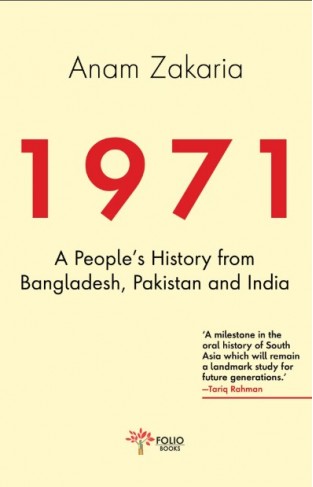
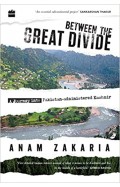
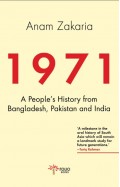
-120x187.jpg?q6)





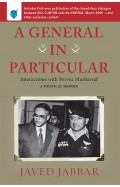
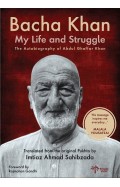

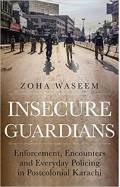
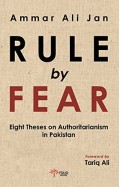
-120x187.jpg?q6)



-120x187.jpg?q6)



